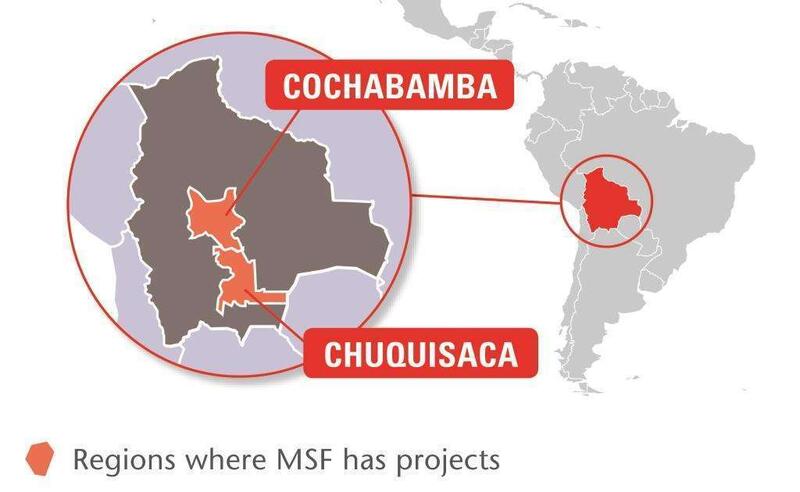Landlocked Bolivia is a country of extremes
It has varied terrain spanning the Andes mountains, the Atacama Desert and Amazon Basin rainforest.

Around two-thirds of the Bolivia's 10.2 million people are indigenous, and the country elected its first indigenous leader - Evo Morales - in 2005.
Bolivia is affected by Chagas, a parasitic disease endemic in Latin America, which is most commonly transmitted through the bites of infected vinchuca bugs, often found in cracks in the walls and roofs of rural adobe houses.
The disease can be asymptomatic for many years, but if left untreated it may affect internal organs and can lead to heart failure and even death.
MSF has worked intermittently in the country to battle Chagas since 1986. In 2013 we handed over our programmes but returned in 2015 to work alongside the Ministry of Health.
[[Country-Facts]]
MSF's work in Bolivia: 2015
In 2015, MSF developed an integrated strategy with the Bolivian Ministry of Health to tackle Chagas disease.[[Article-CTA]]
Our teams also worked to provide access to treatment for patients with secondary complications of the disease, by training medical staff in early detection.
Chuquisaca department has the highest prevalence of Chagas in the country, currently at 70 percent. In 2015, MSF initiated the second phase of a rural project in Monteagudo municipality, which involved recruiting and training the health staff who work in the 17 health facilities in the area.
The project offers free diagnosis and treatment, and by the end of 2015 3,286 people were screened (1,186 were confirmed as having Chagas and 224 began treatment).
MSF has been working with the national programme to strengthen community surveillance by training local volunteers and has also assisted in the spraying of houses. The vinchuca bug (Triatoma infestans) that transmits Chagas lives in the cracks in the walls and roofs of rural adobe houses.
This year MSF tested EMOCHA, an e-mobile surveillance application. Upon detection of a vinchuca infestation, a community volunteer sends a free SMS to a central information system, and a vector control team is deployed. EMOCHA was implemented at the beginning of 2016 in Aiquile, Omereque and Pasorapa, in Narciso Campero province.
Find out more in our 2015 International Activity Report


